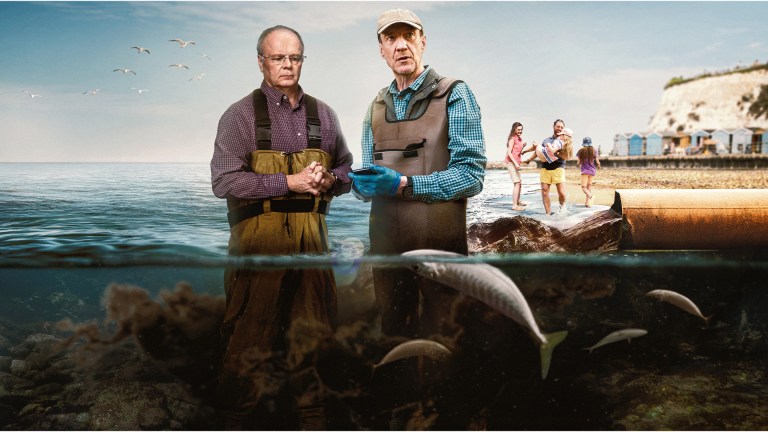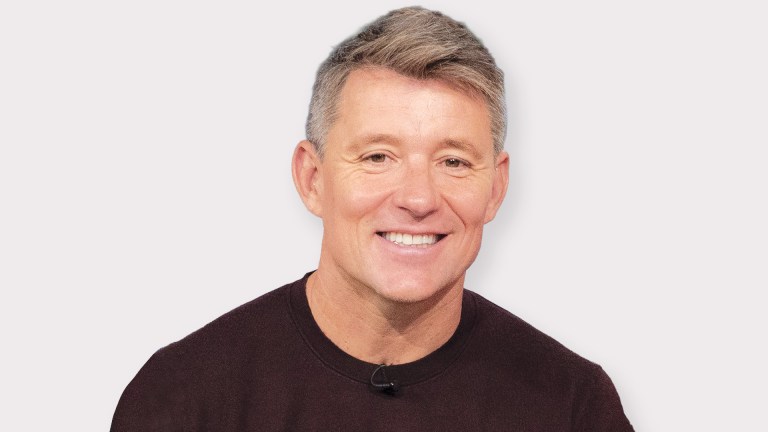The new series also sees Mobeen and co visiting a local foodbank. The idea was brought in by his co-writer Andy Milligan. Former humanities teacher Khan, whose journey to TV comedy began with short YouTube videos, was keen to explore the different cultural resonances of foodbanks.
“Andy was telling me how the rates at which people are utilising foodbanks is increasing incredibly,” he says. “I was like: hold up a second. As a British Pakistani in this country, I’ve never had a conversation or seen or thought about people I grew up with from the South Asian community using a foodbank. It got this cog ticking in my head. And it turns out from the statistics that use of foodbanks transcends all demographics, all races. I thought it would be interesting to see how a British Pakistani in Small Heath might react to having to use a foodbank. Because in the British Asian community there’s a culture of people bringing food to each other’s houses.
“We also wanted to dispel myths around foodbanks. Unfortunately there are people who say, ‘Hold on a minute, you are using a foodbank, but you’ve got an iPhone. Couldn’t you just sell it?’ So we talk about payday loans and how debts continue to cycle. Yes, you might sell your phone one month – but next month you’ve got the rest of loan to pay and you don’t have a phone.”
Khan is a compelling conversationalist. He switches between booming jokes and serious sociological explorations – his discussion of his own relation with class as he grows more successful a case in point.
“It’s weird that as we progress as individuals from this project, how quickly other [non-working class] people are saying, ‘You can’t be working class any more because I saw you on a Walkers Crisps advert, Guz. And that must have paid for small island in
the Bahamas.’
“I’m like, shut up, bruv – the Spice Girls took all the money, let’s get this straight. I’m out here with a bag of crisps and a little bit of change. But I have been struggling with that over the last year.
Advertising helps fund Big Issue’s mission to end poverty
“I always regard myself as working class – I am still in the house I started out in, we are in the same area, my friends are the same. But what is true is that I am no longer waking up at 4.30am and marking school books to get in for a deadline. I am not starting at a factory at 12pm to do a 12-hour shift. So it is important to reflect on my life and how it has changed.”
Two-thirds of the increasingly large and devoted audience for Man Like Mobeen are under 35. As well as bringing topical issues to this underserved demographic, Khan is keen to increase opportunities to join him in the television industry to young working-class Midlanders and has set up a trainee scheme.
“Man Like Mobeen is, I feel, one of the best shows serving people in terms of representation and the stories that it tells,” says Khan. “We have a wonderful behind-the-camera team. They work so hard and have from the beginning. And they are all white British dudes, pretty much. That is still the way it is.
“So it’s about drawing in a new set of blood to learn from them. Our focus puller Matt had one of our trainees learning the ropes of what it’s like to do a camera setup, and another was behind the camera giving input on the scenes.
“All of them turned up on time every day, and these are mad hours. Seeing these young people grow was amazing. And some of them have gone on to get other jobs in the industry immediately.”
It’s a way of working Khan plans to continue – paying it forward, sharing his success. And he is determined that other productions follow suit.
Advertising helps fund Big Issue’s mission to end poverty
“If this tiny project wanting to make this change can do it, I look at productions which have huge budgets and think it is something we can implement on every film set, on every television set. It’s not hard, bro.”
Season three of Man Like Mobeen is available to watch on BBC Three via the iPlayer from today.









